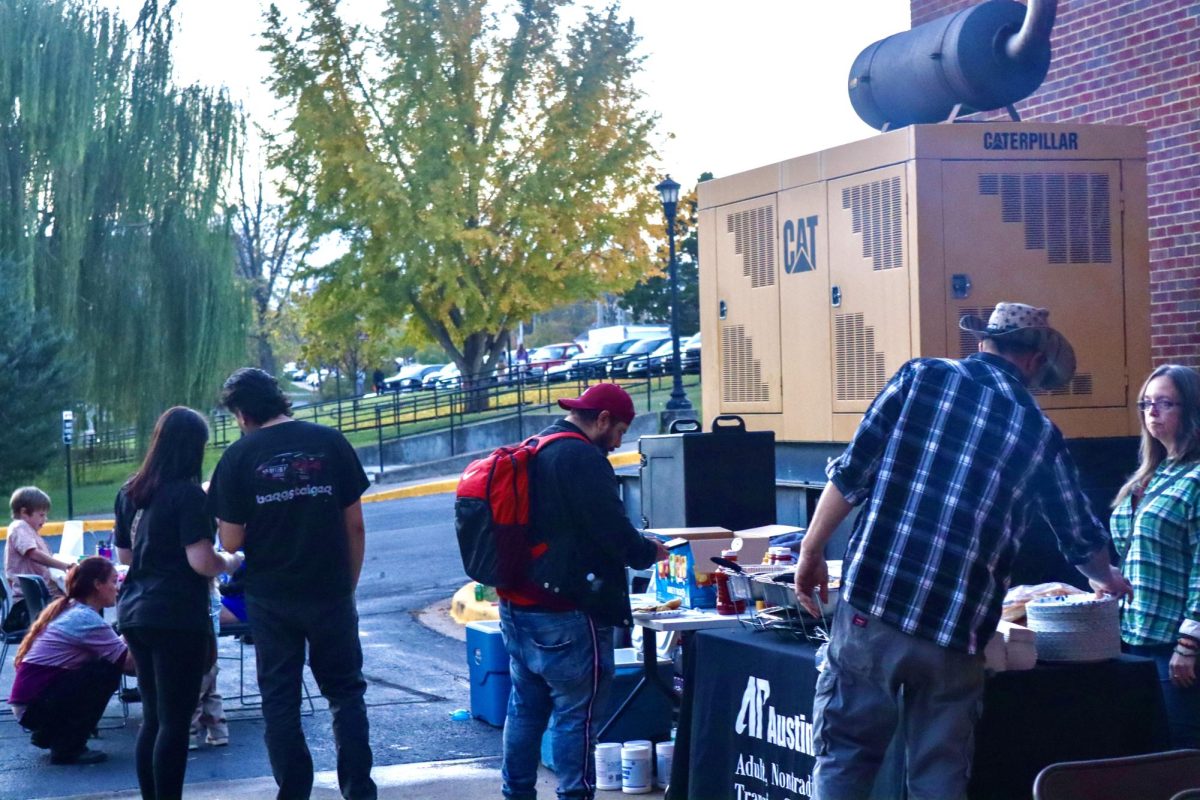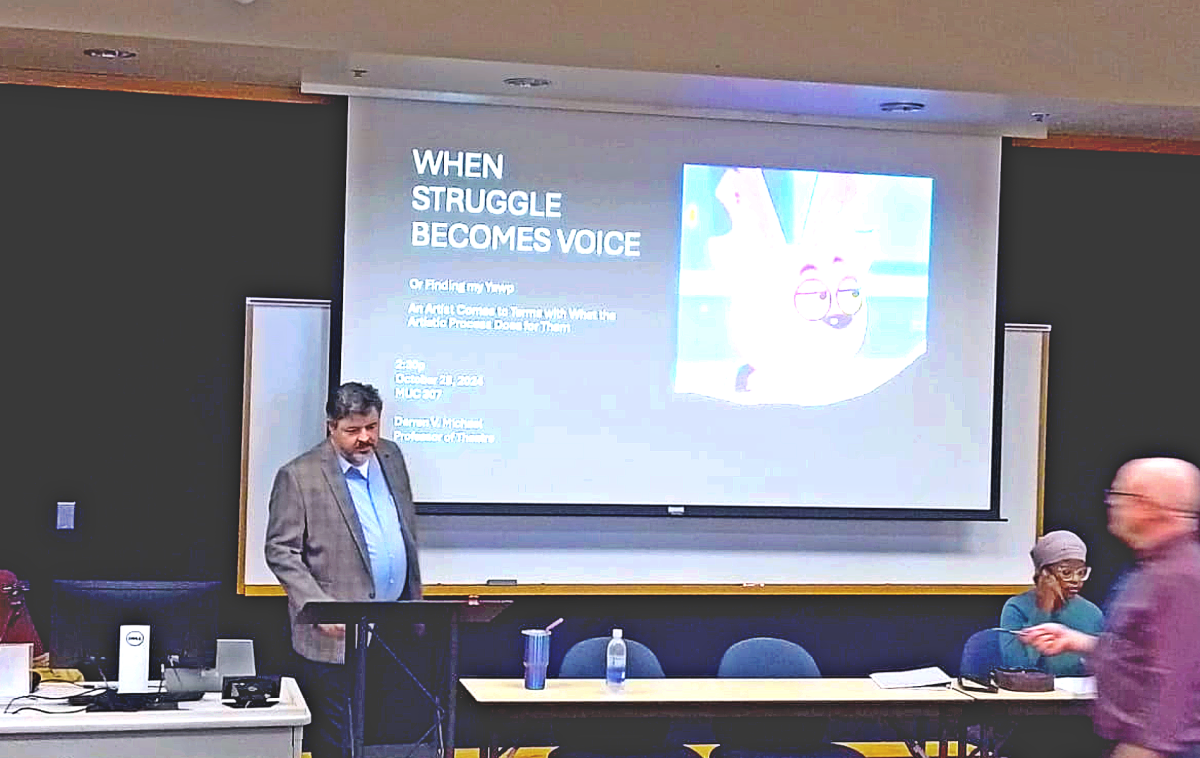T-shirts hung up on clotheslines filled the University Center Plaza all day Thursday, Oct. 27. The T-shirts had stories of people who are survivors of sexual assault and abuse, and the family members of people who did not survive to tell their stories. The T-shirts spanned from the plaza between the UC and Ann Ross Bookstore all the way to Browning Drive.
The Feminist Majority Leadership Alliance has hosted the Clothesline Project at APSU for 19 years. Each year more shirts are added to the clothesline that weaves a narrative for the victims of abuse and broadcasts the stories to the student body.
“The project started in 1991 when a group of women realized that there were the same amount of deaths of women over the course of the year as soldiers who fell in Vietnam,” Coordinator of Gender Studies Jill Eichorn said. “So they wondered where their wall was and that is how the Clothesline Project came to be.”
Eichorn said the Clothesline Project raises awareness about “interpersonal violence that affects lots of people.”
When the project started, the FMLA focused on assault towards women, but Eichorn said they “have come to realize that men are also affected.”
All the shirts told a diverse story of the different walks of life of the victims of abuse.
Some shirts told the story of anger over lost innocence or a lost family, while others told of defiance against their abusers.
“All these shirts stand out to me because we are normally covered by clothes. However, these shirts are covered with stories and emotional scars that a piece of clothing would normally be covering,” Turner said.
The FMLA had a table set up in the middle of the clothesline display with literature about awareness of abusive relationships and the appropriate way to conduct oneself when out in the dating world.
They also set up a table for students to come and write on T-shirts to share their story about how abuse may have affected them or a loved one’s life.
“I’m glad to see all these stories broadcast for all to see. In many cases stories of assault are brushed under the rug as a source of shame, so the victim has no outlet to tell the world,” freshmen business major Peyton Garman said.







